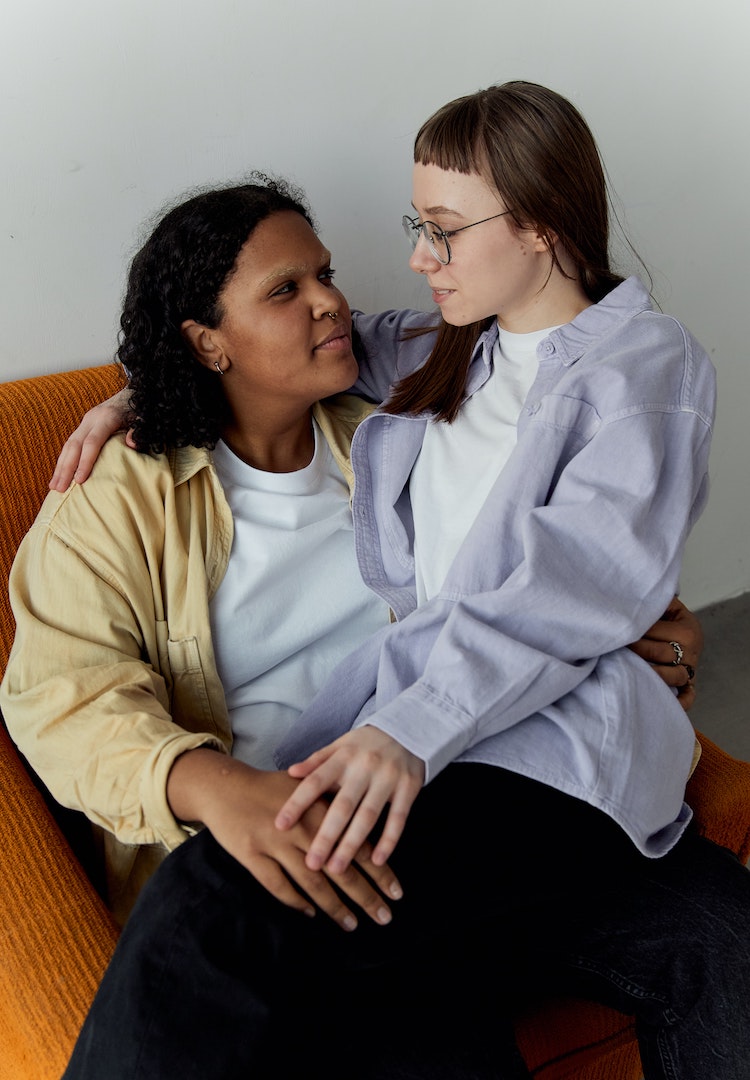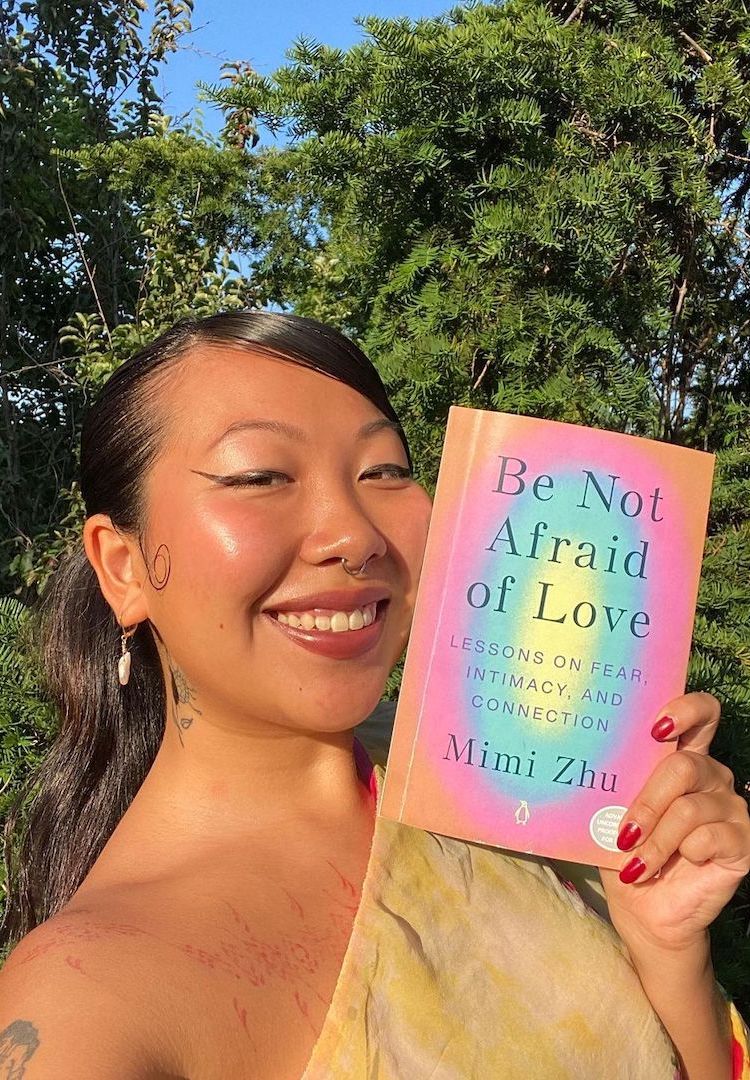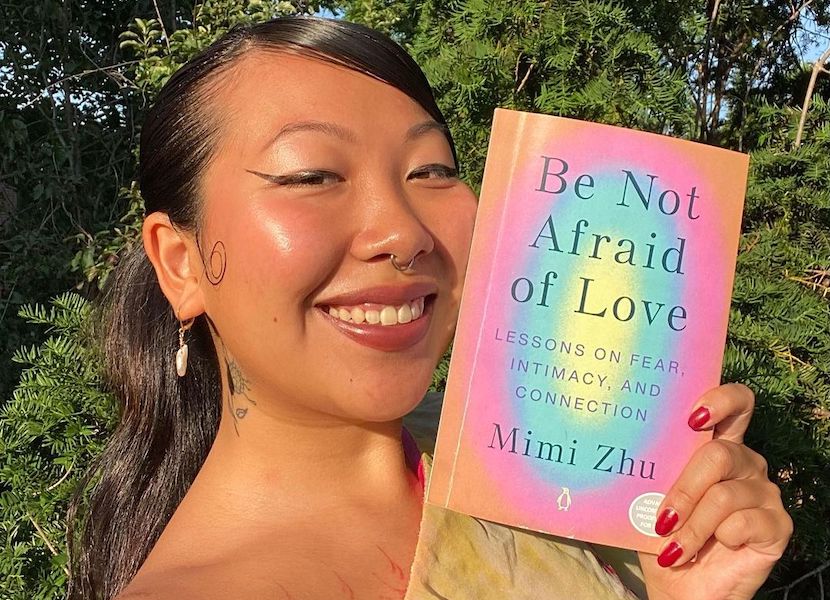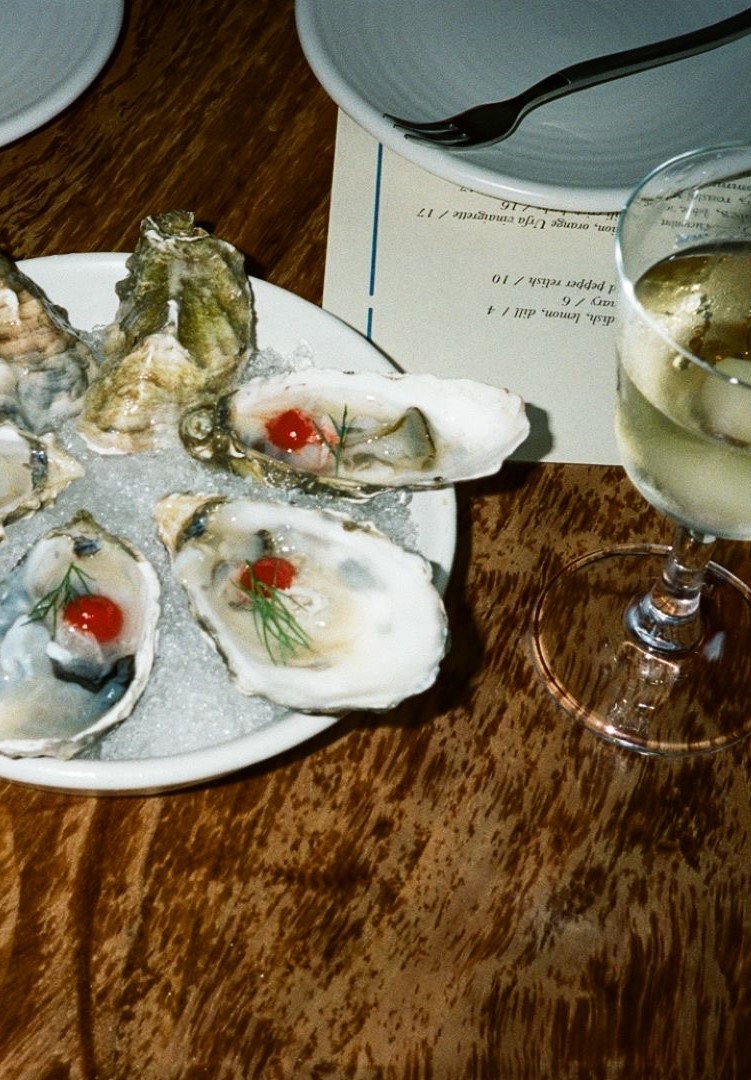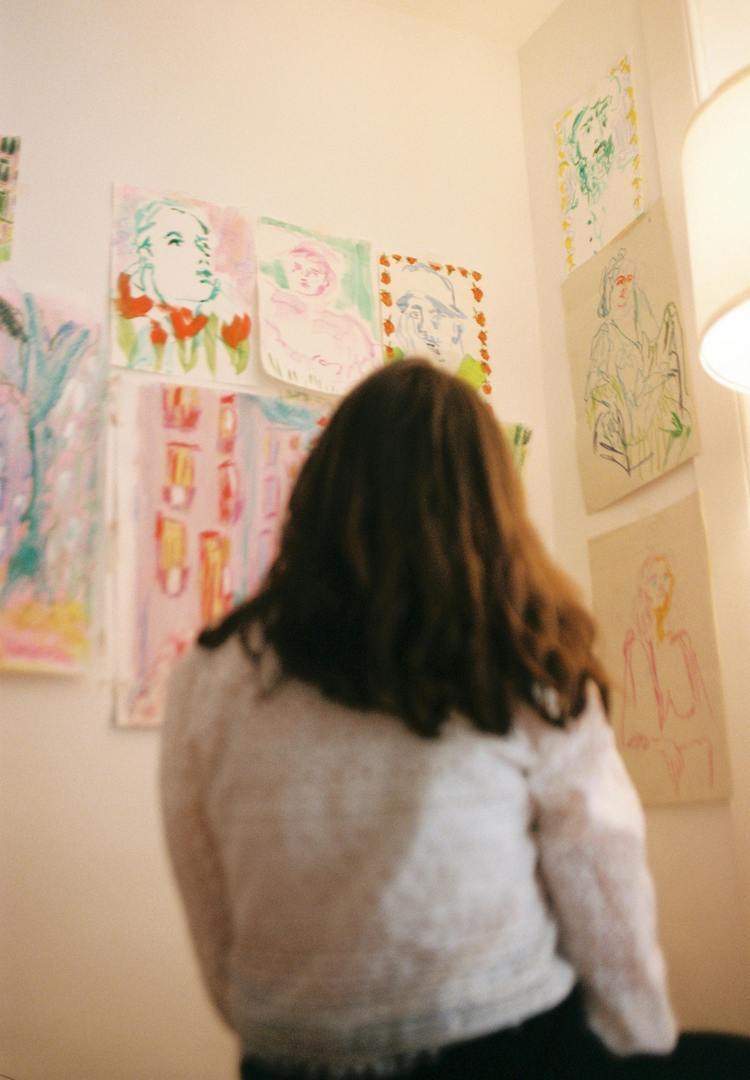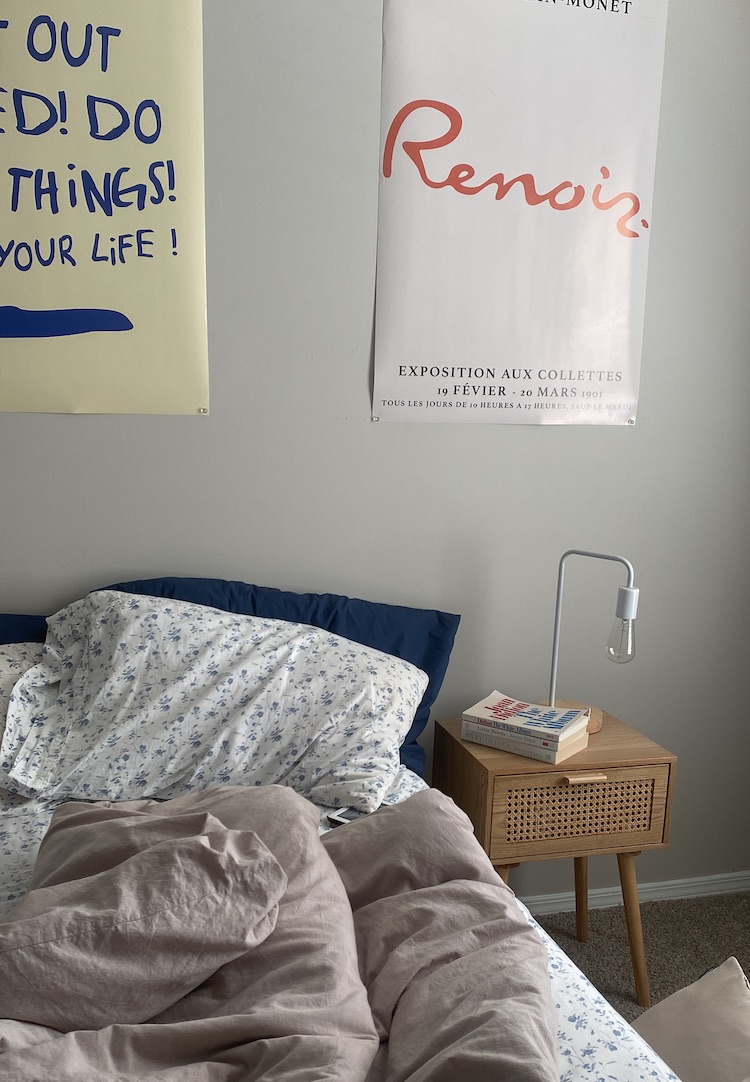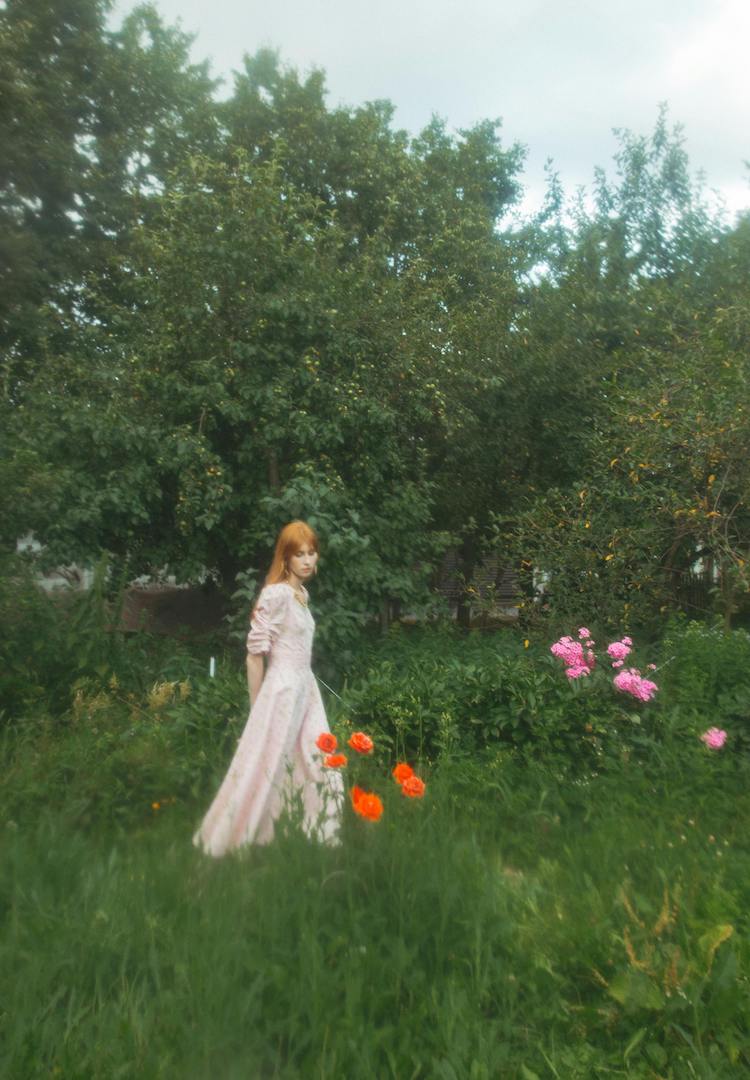An excerpt from Chinese-Australian writer Mimi Zhu’s new book, ‘Be Not Afraid of Love’
IMAGE VIA @mimizhuxiyuan/INSTAGRAM
WORDS BY MIMI ZHU
“Instead of pointing a trembling finger at love, I look closely and gently at my fear.”
Content warning: This article discusses things that may be triggering for those who have experienced abusive relationships
Every morning, a delicate iridescent hummingbird hovers outside my window. His arrival feels like a blessed omen and a message of love. I always greet him as he rapidly beats his wings and I wonder if he ever gets tired of movement.
Some days, I try to take it a step further and open the window but every time he buzzes away and disappears out of sight. He always comes back the next day, drinking the nectar from the marigolds on my windowsill and I observe his flight with admiration.
Interested to hear how others navigate the world? Head to our Life section.
It is clear to me that my sudden movements are perceived by him as a threat, and that it will take him some time to trust me. Lately, I open the window a little slower, and I find that he is not as quick to fly away.
He watches me for a second, less scared but more inquisitive, and then he flutters away. As he takes flight once more, I watch his beating wings, acknowledging that he hums for his survival. I hope that he lands in a quiet place to rest once his belly is full of the sweet gold nectar.
All living beings have adapted many ways of sensing danger. I think of the beings I grew up with: observant stray cats, green tree frogs, towering prickly succulents, and shy mimosa plants. Like our plant and animal kin, we display learned and intuitive biological reactions to what we perceive as threatening to our safety and well-being.
Most of us who have experienced trauma can be hypervigilant and hold distrust in our hearts, and our bodies can often react in a multitude of learned and innate ways. Our protective tendencies show just how much we value our lives.
Neither survival nor danger is new to Earth, though some human beings seem to be responsible for the invention of new threats. The new challenges we face make us question whether we still know how to distinguish safety from danger. What happens when love presents itself to us and we perceive it as a threat? What happens when danger is nearby and we perceive it as love?
View this post on Instagram
Somatic healing practitioners have distinguished the most common survival strategies as flight, fight, freeze, appease, and dissociate. In The Politics of Trauma, Staci K. Haines closely studies the iterations of each reaction, explaining that “these protective responses are well beyond our conscious capacity to control them. We have inherited them through both evolution and the particular biology of who made and birthed us. In turn, they work with the interpersonal, cultural and social context in which we live.”
Even abusive intimate relationships can disguise themselves as love. After we experience abuse, it becomes increasingly difficult for us to identify who we can trust. Close relationships can feel like threats to our safety.
When abuse has been enacted in romantic, platonic or familial relationships, it can feel either risky or ‘boring’ to experience true love in comparison with previous toxic relationships. My survival mechanisms would always flare up when I made new connections.
I have found myself fearful, hypervigilant and stubbornly detached. I did not trust myself, let alone anybody else. This has led me to explore my survival strategies and unpack the past trauma I was responding to.
Understanding this forced me to look at the violence that has historically, personally and systemically been normalised in association with ‘love.’ It has taken me a long time to understand that I was not afraid of love. Instead, I was fearful of the abuse that has disguised itself as love.
I have witnessed violence seep into intimate relationships and I have seen how love has been misconstrued as the means to abuse, control, and possess. I have witnessed love disguised as ‘passion’ and rewritten as domination. There is so much to heal from that requires us to embark on a continuing unpacking of systemic violence, hierarchical supremacy, gender roles and childhood traumas.
With so much to unlearn, how can we come closer to trusting one another? First, we can listen to our intuitions and tend to our various survival mechanisms to understand what makes us feel safe. Our survival mechanisms are unique, brilliant, and necessary and they can tell us a lot about what we care about, what we fear and what can bring us closer to love.
I think of the hummingbird that hums before me and how each day we seem to become closer in trust. I consider my own bodily instincts and how my biological and psychological survival mechanisms endeavour to protect me.
Not only are they telling me how to react to dangerous situations but they are also affirming that I am deserving of abundance and safety. Instead of pointing a trembling finger at love, I look closely and gently at my fear. I see that there is plenty of room to relearn trust and closeness. Funnily enough, love is the force that guides me through. Love is what allows us to survive.
This is an edited extract from Mimi Zhu’s Be Not Afraid of Love which is out now, published by Hardie Grant.

